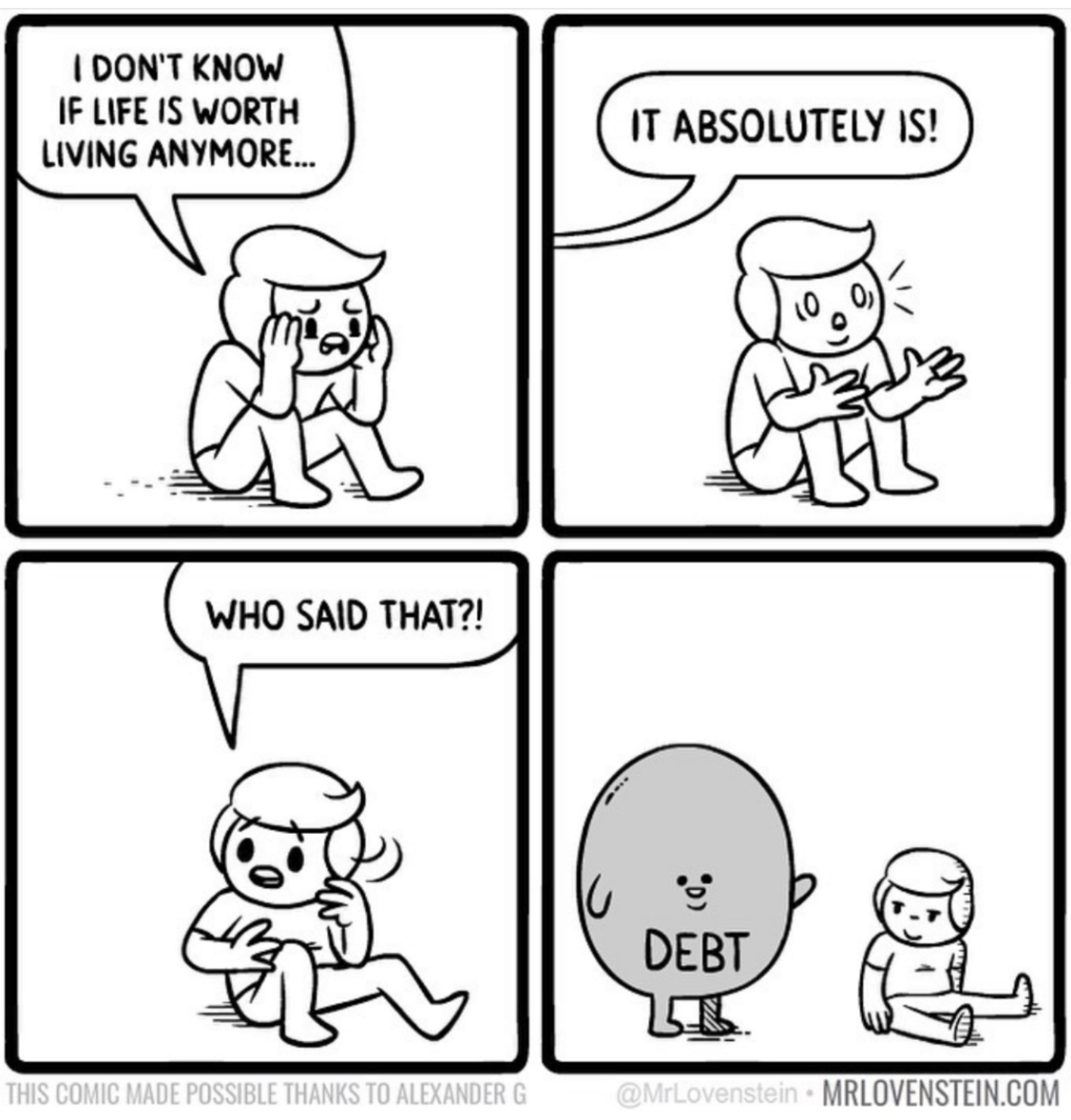this post was submitted on 07 Jan 2025
719 points (99.2% liked)
Comic Strips
15032 readers
3943 users here now
Comic Strips is a community for those who love comic stories.
The rules are simple:
- The post can be a single image, an image gallery, or a link to a specific comic hosted on another site (the author's website, for instance).
- The comic must be a complete story.
- If it is an external link, it must be to a specific story, not to the root of the site.
- You may post comics from others or your own.
- If you are posting a comic of your own, a maximum of one per week is allowed (I know, your comics are great, but this rule helps avoid spam).
- The comic can be in any language, but if it's not in English, OP must include an English translation in the post's 'body' field (note: you don't need to select a specific language when posting a comic).
- Politeness.
- Adult content is not allowed. This community aims to be fun for people of all ages.
Web of links
- !linuxmemes@lemmy.world: "I use Arch btw"
- !memes@lemmy.world: memes (you don't say!)
founded 2 years ago
MODERATORS
you are viewing a single comment's thread
view the rest of the comments
view the rest of the comments

It depends on the circumstance.
When you die, all your assets become part of your estate, which is usually then distributed either to your spouse, next of kin, or whatever individuals/nonprofits you name in your will.
If your house is part of that estate, and has a mortgage, then if your family wants to claim the house from the estate, they then have to take responsibility for, and pay the mortgage until they can sell the house, for instance.
If you owed a debt before you died, then died, and your estate had money in it, the lender would get to request that the estate pay off the debts owed before the family could lay claim to the remainder.
But in no way do any debts ever simply transfer from a deceased person to the next of kin without explicit consent, often within very specific situations, like taking claim of a house with a mortgage.